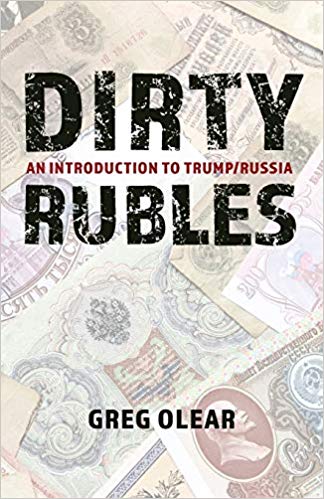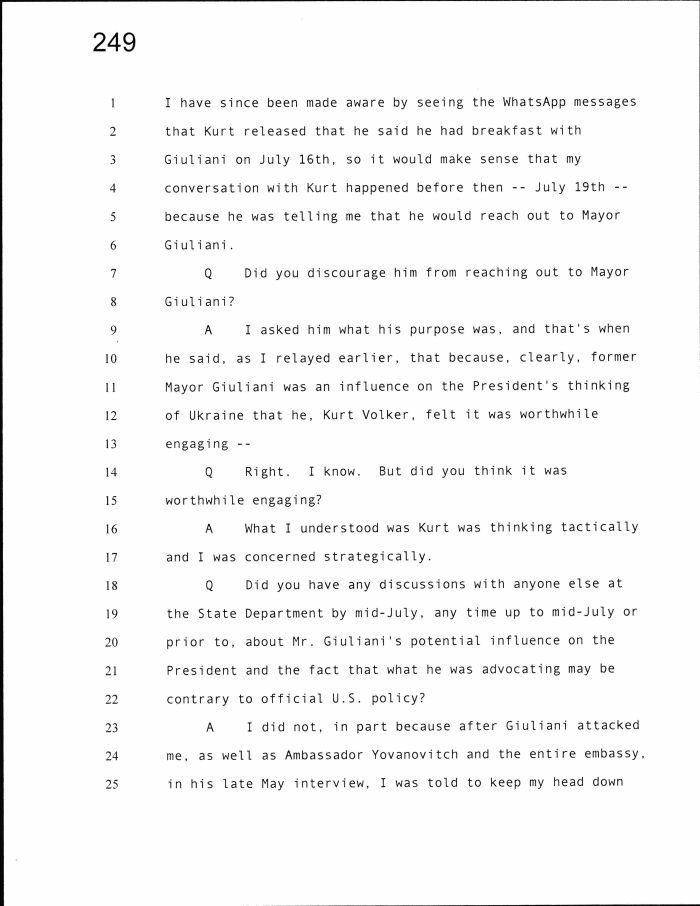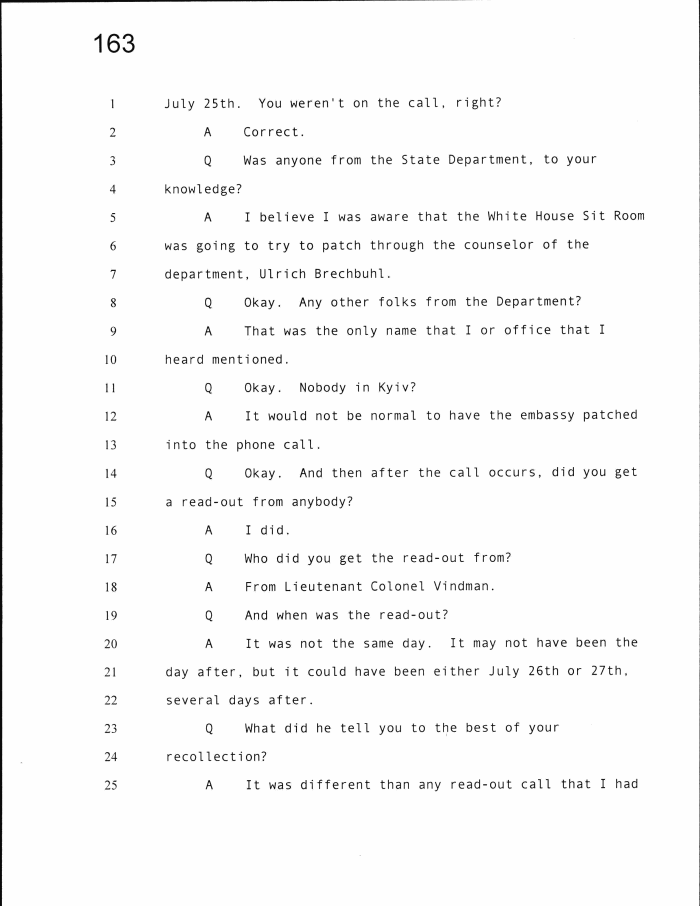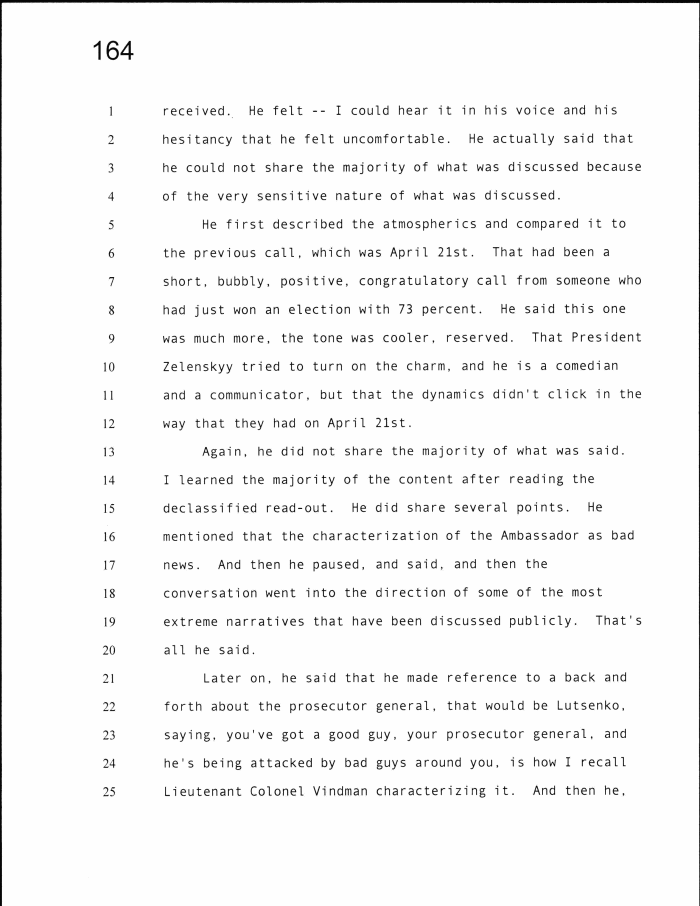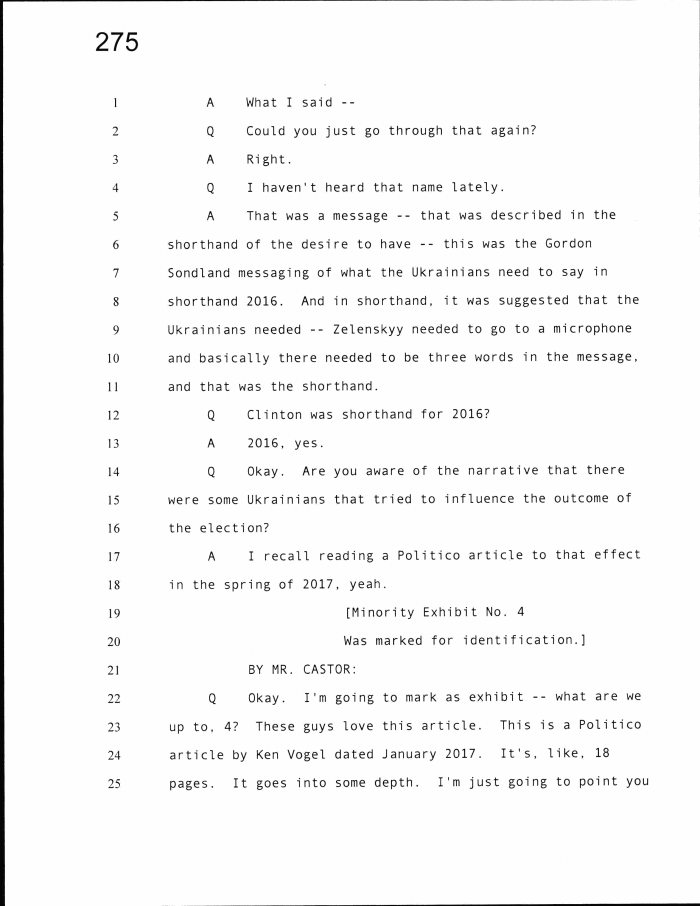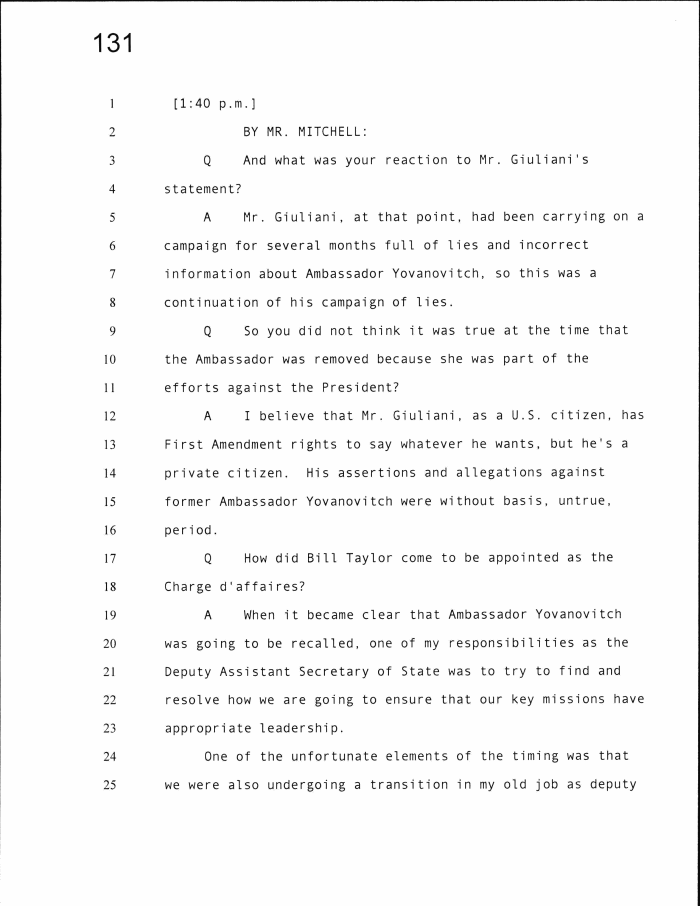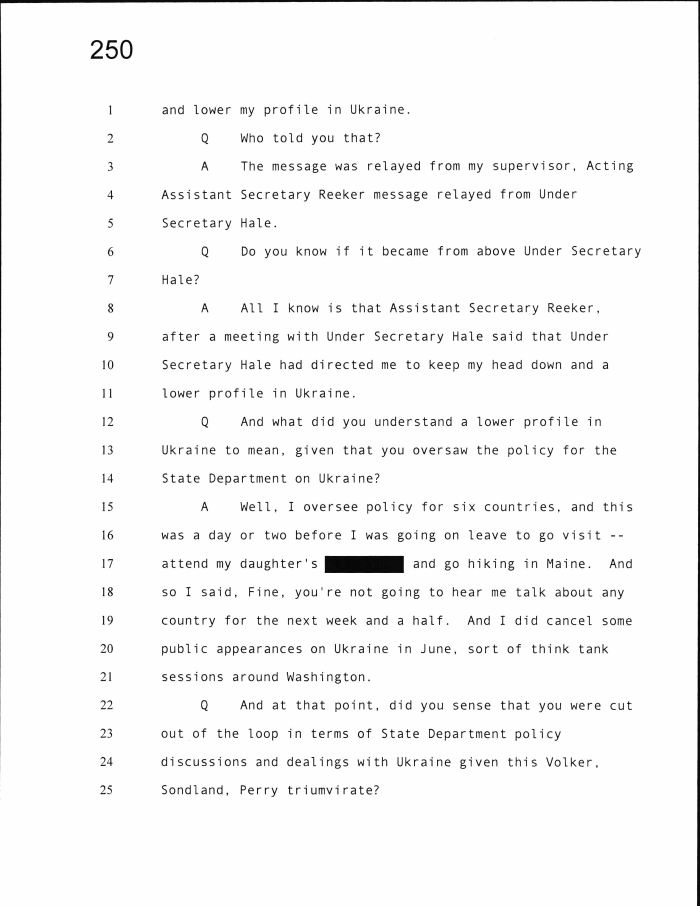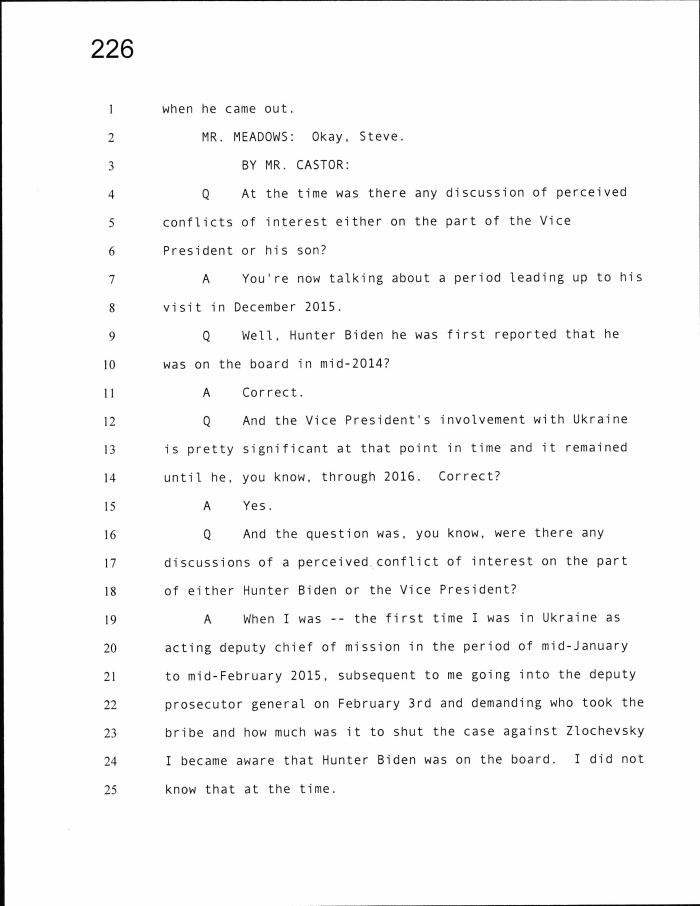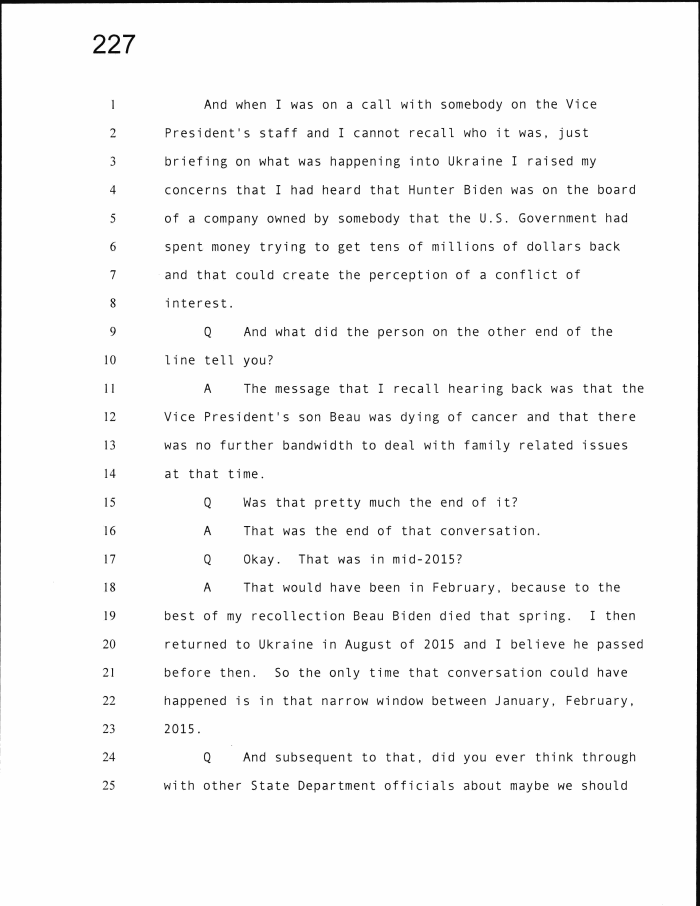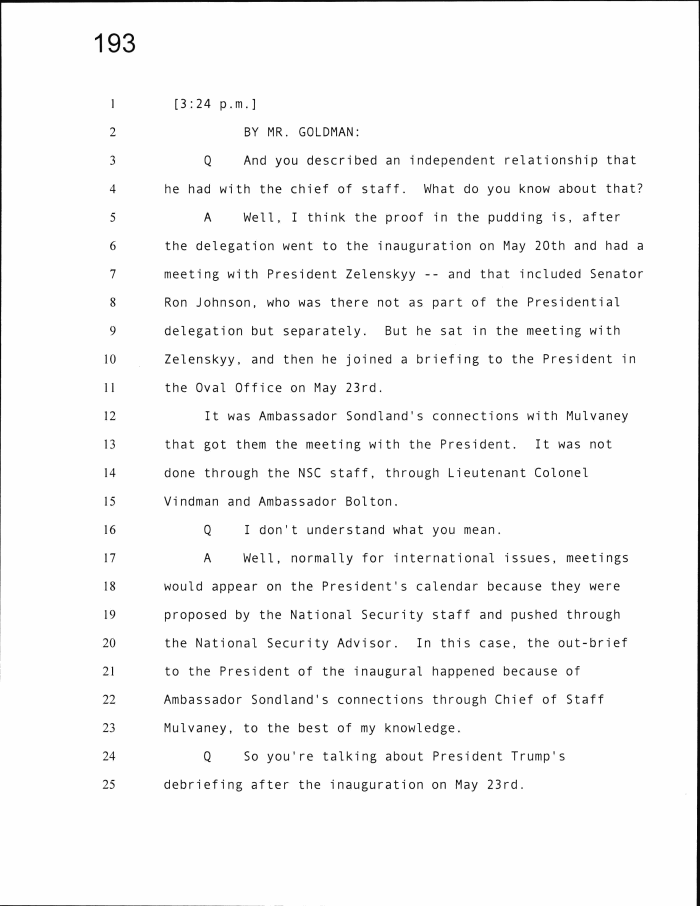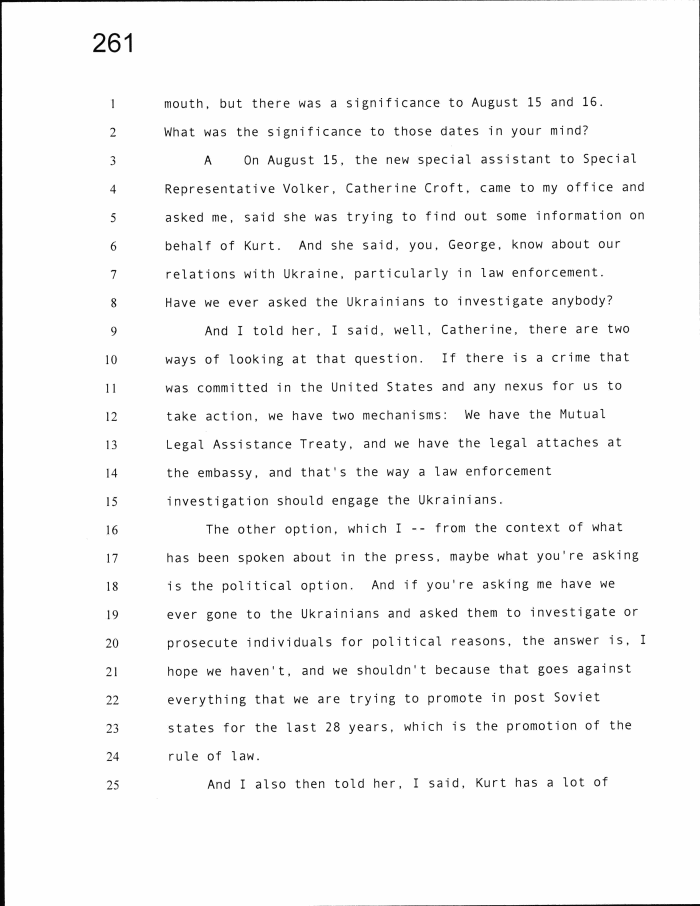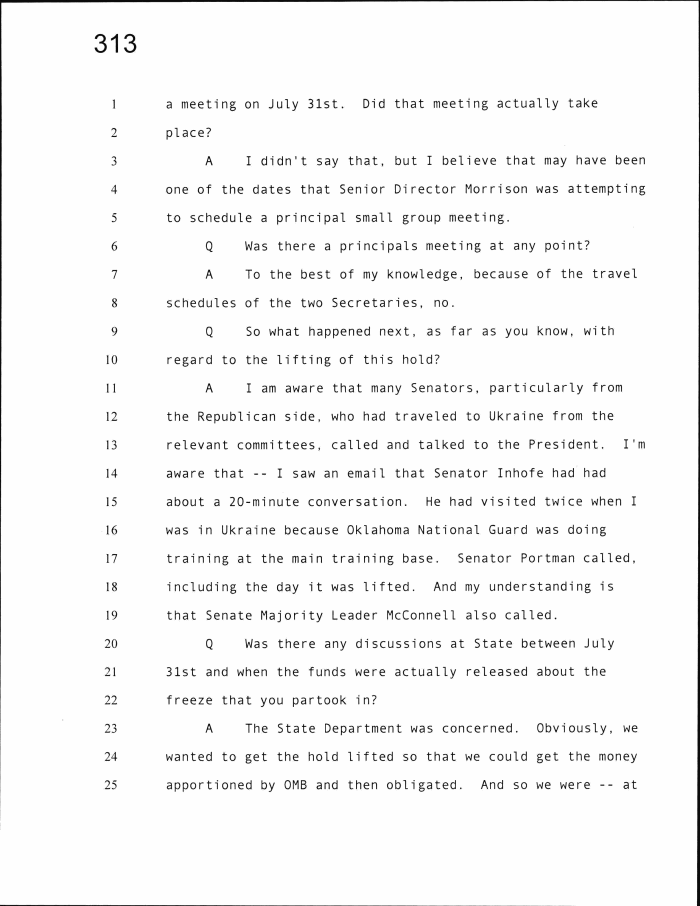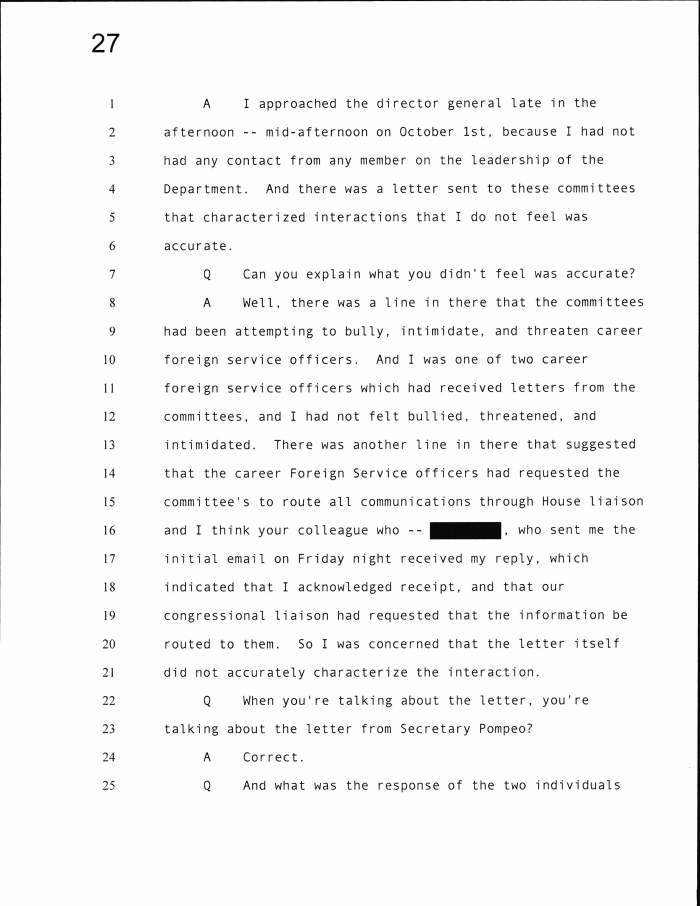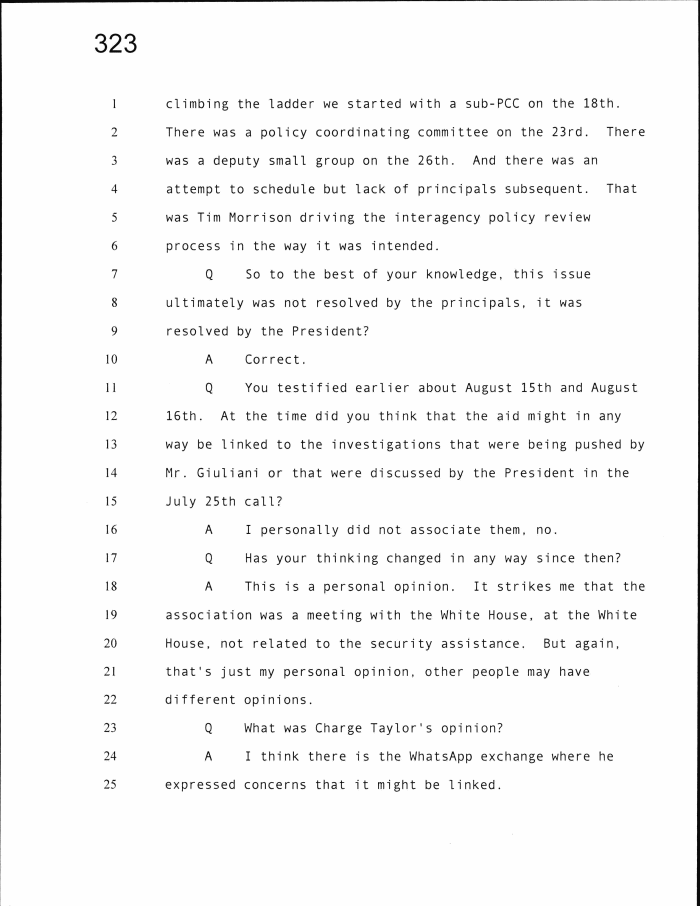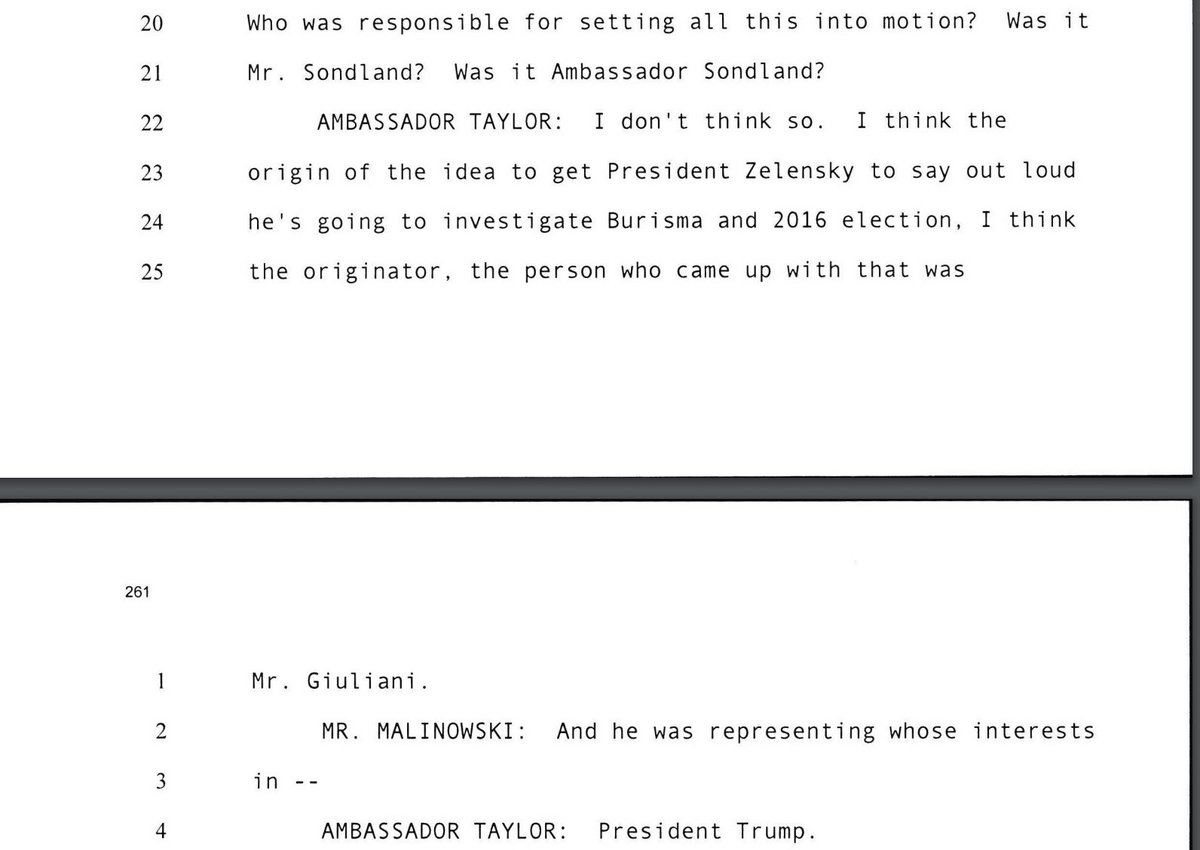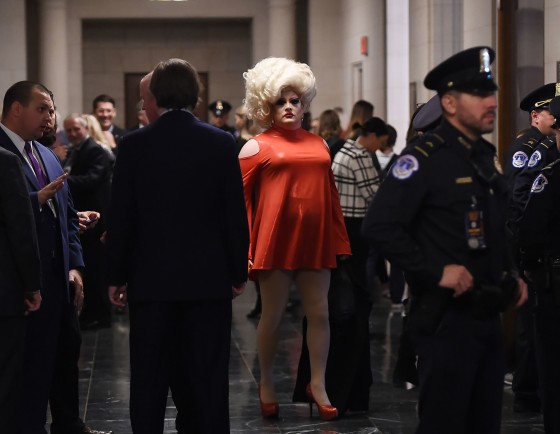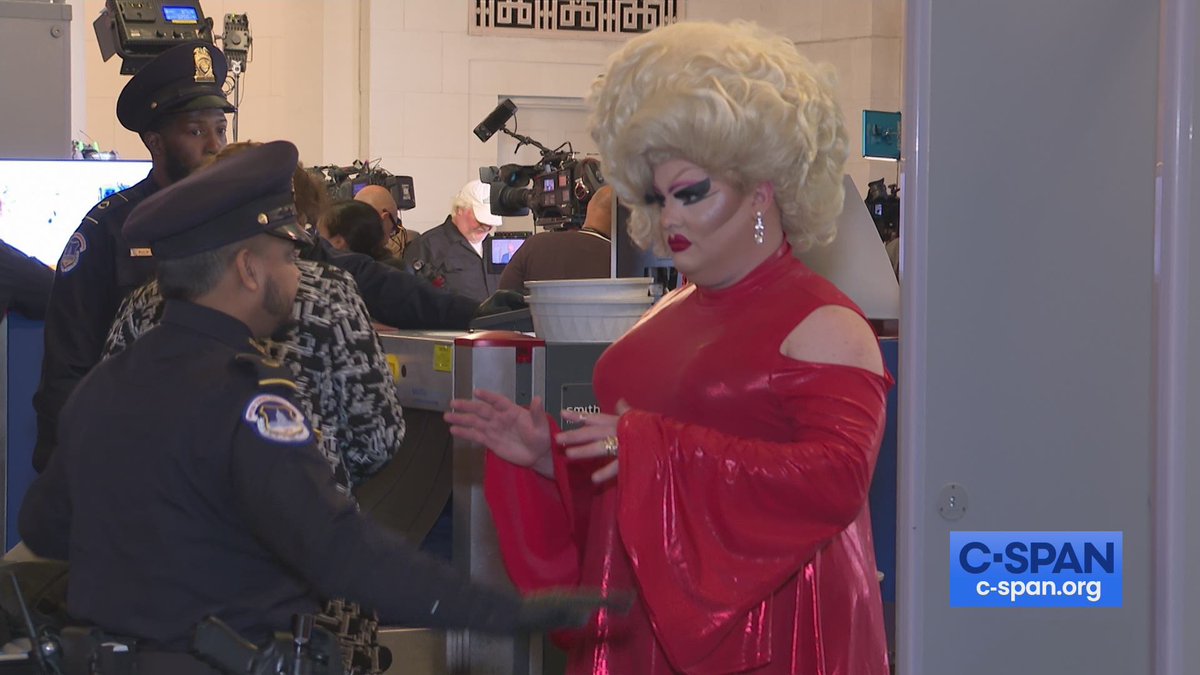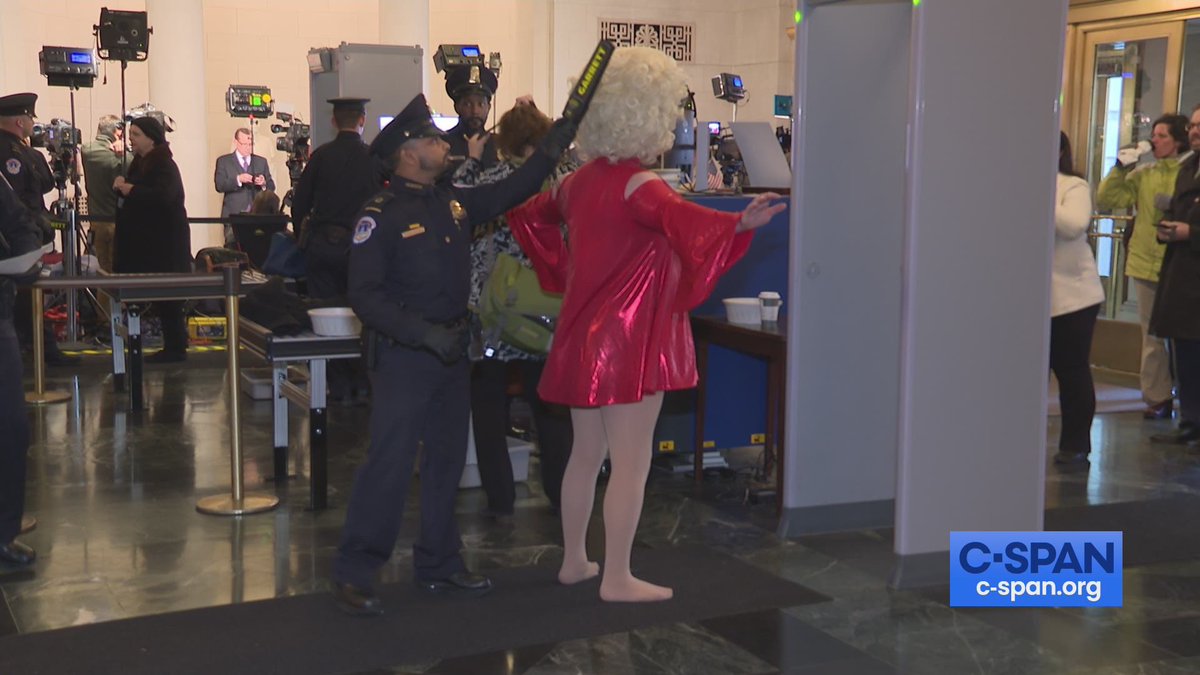Live updates: House will vote on impeachment procedures Thursday to ‘ensure transparency,’ Democrats sayBrittany Shammas
President Trump appears at the White House on Sunday. (Jabin Botsford/The Washington Post)
House Democrats said Monday that the House will vote Thursday to formalize procedures for the next phase of the impeachment inquiry into President Trump.
Democrats said the move would “ensure transparency and provide a clear path forward” as the inquiry continues.
House Intelligence Committee Chairman Adam B. Schiff (D-Calif.), meanwhile, said that a former deputy national security adviser had “no basis in law” to skip a deposition Monday and that his failure to appear was further evidence of Trump’s efforts to obstruct Congress.
Charles Kupperman, who served as a deputy to former national security adviser John Bolton, filed a lawsuit Friday seeking guidance from a federal judge about whether he should listen to the executive branch, which has told him not to attend, or to Congress. Since there has not yet been a ruling, he declined to appear.
Kupperman listened in to the July 25 call in which Trump pressed Ukrainian President Volodymyr Zelensky to investigate former vice president Joe Biden and his son Hunter Biden. That call is at the center of the impeachment inquiry, which Trump and his Republican allies continued to attack Monday as unfair.
●Whistleblowers walk among us. Now one has gotten in Trump’s head.
●Trump seizes on Baghdadi raid to paint Democrats as dangerous leakers — and it’s likely to inflame tensions amid a rancorous impeachment inquiry.
●John Kelly says he warned Trump he’d be impeached if he hired a “yes man” as chief of staff to replace him.
What’s next in the inquiry | Key documents related to the inquiry | LISTEN: Post podcasts on impeachment
3:20 p.m.: House will vote on impeachment procedures Thursday to ‘ensure transparency,’ Democrats say
House Democrats said Monday that the House will vote on Thursday to formalize procedures for the next phase of the impeachment inquiry into Trump.
The text of the resolution was not immediately available, but House Rules Committee Chairman Jim McGovern (D-Mass.) said it would “ensure transparency and provide a clear path forward” as the investigation continues. “This is the right thing to do for the institution and the American people,” he said.
1:50 p.m.: Morrison will appear if subpoenaed, lawyer says
Following Kupperman’s failure to appear, a lawyer for another witness scheduled for deposition this week — Tim Morrison, the National Security Council’s Europe and Eurasia director — issued a statement saying that he still plans to appear if subpoenaed.
“Our plans have not changed: if subpoenaed, Mr. Morrison will appear,” Morrison’s attorney, Barbara Van Gelder, said in a statement.
Morrison could be a key witness.
Acting U.S. ambassador to Ukraine William B. Taylor Jr. has told investigators that Morrison was on the July call between Trump and Zelensky. Taylor said he spoke to Morrison several times about his concerns that Trump was using military aid as leverage to pressure Ukraine to investigate the Bidens.
1:35 p.m.: Trump campaign debuts new ‘Witch Hunt’ merchandise
The Trump campaign began selling merchandise Monday riffing off the Disney movie “Hocus Pocus,” deriding the impeachment inquiry as a witch hunt.
Limited edition “Stop the Witch Hunt” T-shirts and “fine art” posters hit the online campaign store by early afternoon, after first being announced by Breitbart. The items recast Schiff, House Speaker Nancy Pelosi (D-Calif.) and House Judiciary Committee Chairman Jerrold Nadler (D-N.Y.) as the witches. In a crystal ball below them, Trump grips an American flag.
“HOAXUS POCUS!” the description says. “The Greatest Witch Hunt in the history of the USA continues. The only people scared this Halloween are Shifty Schiff, Nervous Nancy and Democrat Hack Jerry Nadler about their chances in 2020!”
1:30 p.m.: Kupperman issues statement calling for ‘judicial clarity’
After failing to appear before House investigators, Kupperman issued a statement suggesting it would be in the best interest of all parties to have a court ruling on whether he should listen to the White House or Congress.
“Given the issue of separation of powers in this matter, it would be reasonable and appropriate to expect that all parties would want judicial clarity,” Kupperman said.
12:2o p.m.: Pelosi highlights news story about Republican anxiety
The office of House Speaker Nancy Pelosi (D-Calif.) highlighted a Washington Post story Monday about concerns of Senate Republicans that the fast-expanding impeachment probe is fraying their party as it becomes more difficult to defend Trump.
The piece was blasted by email to reporters on Pelosi’s press list.
12:15 p.m.: Starr suggests censure as alternative to impeachment
Kenneth W. Starr, who conducted the investigation that led to President Bill Clinton’s impeachment in 1998, said Monday that the House should have spent more time discussing less severe penalties.
On a podcast hosted by Washington Examiner political correspondent Byron York, Starr said it would have been prudent for Congress to have fully debated remedies other than impeachment. He pointed in particular to a censure of Clinton that was proposed by Sen. Dianne Feinstein (D-Calif.).
“I think the discussion was impoverished by not having a full debate within the House and for that matter within the Senate on whether something short of impeachment would have been appropriate under the circumstances,” Starr said. “Specifically, a resolution of censure.”
He suggested that the same approach could be contemplated for Trump’s phone call with the Ukrainian president. While Trump’s conduct is “not the stuff of impeachment,” a censure could be within reason, Starr said.
“It just seems to me we need to ratchet the conversation down because of the evils of impeachment,” Starr said. “Impeachment has become a terrible, terrible thorn in the side of the American democracy and the conduct of the American government since Watergate.”
11:50 a.m.: Trump compares impeachment to Jussie Smollet case
President Trump said Oct. 28 that the Democrats' impeachment inquiry is similar to Jussie Smollett staging an attack on himself. (The Washington Post)
While addressing a gathering of police chiefs in Chicago, Trump compared the Democrat-led impeachment inquiry to allegations that actor Jussie Smollet made in the city earlier this year involving two purported Trump supporters.
“It’s a scam. Just like the impeachment of your president is a scam,” Trump told the conference of the International Association of Chiefs of Police.
In January, Smollett told police that he was attacked by two men in ski masks who called him racial and homophobic slurs, and said, “This is MAGA country,” referencing Trump’s 2016 campaign slogan, “Make America Great Again.”
The next month, Smollett was charged by a grand jury with a felony for filing a false police report. His defense team reached a deal with prosecutors in March under which charges were dropped in return for Smollett performing community service and forfeiting his $10,000 bond.
11 a.m.: Pelosi highlights Gowdy’s defense of closed-door hearings
The political team of House Speaker Nancy Pelosi (D-Calif.) sought Monday to highlight a weekend television interview in which former Republican congressman Trey Gowdy voiced support for closed congressional hearings.
During an appearance on CBS’s “Face the Nation,” Gowdy was asked whether he still believes what he said in 2018: that public hearings can turn into a “circus” or “freak show.”
“Do you still believe that?” host Margaret Brennan asked.
“One hundred percent,” responded Gowdy, who served as chairman of a House select committee on the 2012 terrorist attack in Benghazi.
Republicans have repeatedly complained about the use of closed-door depositions in Trump’s impeachment inquiry.
Pelosi’s team tweeted a news story Monday recounting Gowdy’s appearance that included a television clip.
10:15 a.m.: Schiff says Kupperman had no justification to skip deposition
Rep. Adam B. Schiff (D-Calif.) said Charles Kupperman's failure to appear at an Oct. 28 deposition is 'powerful evidence" of obstruction by the White House. (The Washington Post)
Schiff said that Kupperman’s justification for not appearing Monday has “no basis in law” and could be used against him in a contempt-of-Congress proceeding.
Kupperman has indicated that he will not appear until a judge rules on whether he should listen to the White House, which has asked him not to cooperate, or Congress, which issued a subpoena to compel his testimony.
“We suspect the court will make short shrift of that argument,” Schiff told reporters.
Schiff also said that if the White House continues to instruct witnesses from the administration not to appear, it will be “building a very powerful case” for an article of impeachment against Trump for obstructing Congress.
“The White House has obstructed the work of a coequal branch of government,” Schiff said.
He expressed disappointment in Republican colleagues who have supported the White House’s efforts to block witnesses.
“Where is their duty to this institution? Where is their duty to the Constitution?” Schiff asked.
10 a.m.: Jordan defends Kupperman’s no-show
Rep. Jim Jordan (R-Ohio) defended Kupperman’s failure to appear for a deposition Monday, telling reporters that the former Bolton deputy would be “more than willing to come” if a federal judge rules he must.
“If the court rules against him, then — well, not really necessarily rules against him — if the court says he has to come, he’s more than willing to come,” Jordan said, adding that Kupperman “has said several times that he’s willing to come, but obviously he’s not coming today.”
Jordan reiterated his criticism of the impeachment inquiry, which he called a “charade.”
“There’s never been nothing there, but Adam Schiff down here in the bunker continues to have these secret depositions and then go out and leak stuff,” Jordan said.
9:40 a.m.: Sondland goes to Capitol Hill to review testimony
Gordon Sondland, the U.S. ambassador to the European Union, has appeared on Capitol Hill to review the transcript of his Oct. 17 deposition before House investigators. Reviews are routine for such depositions.
Sondland, a Trump campaign donor who has emerged as a central figure in the Ukraine scandal, testified that Trump delegated U.S. foreign policy on Ukraine to his personal lawyer Rudolph W. Giuliani.
9:30 a.m.: Kupperman fails to appear for closed-door deposition
Kupperman failed to show for an impeachment inquiry deposition as he sought a court ruling to resolve a dispute over testifying.
The former Bolton deputy had faced a congressional subpoena and a warning from Democrats that a failure to appear could result in a contempt citation.
Kupperman filed a lawsuit Friday asking a federal judge to resolve conflicting orders from Congress and the White House over his testimony. Over the weekend, his attorney Charles Cooper reiterated Kupperman’s desire to have the courts resolve the dispute before he appears.
8:50 a.m.: Trump attacks Schiff, says he committed a ‘criminal act’
President Trump discussed the impeachment inquiry and the allegation of a quid pro quo on Oct. 28, saying, "There was no anything." (The Washington Post)
Trump took renewed aim at Schiff on Monday, calling him a “corrupt politician” and accusing him of having committed a “criminal act” during a congressional hearing last month.
During an Intelligence Committee hearing, Schiff, who is leading the impeachment inquiry, presented an embellished version of Trump’s call with Zelensky. At the time, Schiff said he was conveying “the essence” of what Trump had relayed to Zelensky. Schiff later said it was meant as a parody, something that he said should have been apparent to Trump.
“Adam Schiff went before Congress and Adam Schiff, what he did will never be forgotten: he made up a conversation,” Trump told reporters at Joint Base Andrews as he prepared to head to Chicago. “They say he has immunity because he’s a member of Congress. People shouldn’t be allowed to do that. What he did, that’s a criminal act.”
Trump also defended his decision not to brief Schiff about the military operation targeting Abu Bakr al-Baghdadi, the founder and leader of the Islamic State, before announcing his death publicly.
“They were talking about why didn’t I give the information to Adam Schiff and his committee, and the answer is, I think Adam Schiff is the biggest leaker in Washington,” Trump said. “He’s a corrupt politician. He’s a leaker like nobody’s ever seen before.”
8:45 a.m.: Trump praises Giuliani for ‘looking for corruption’
Trump continued to stand by his personal attorney Rudolph W. Giuliani, telling reporters Monday that he considers him a “good man.”
“He was the greatest mayor in New York City history,” Trump said before departing for Chicago on Air Force One. “But he’s been a great crime fighter. He’s always looking for corruption, which is what more people should be doing. He’s a good man.”
Giuliani has become a key figure in the Ukraine scandal because of his repeated efforts to press Ukraine to investigate the Bidens. Two associates of Giuliani, who assisted with him in Ukraine, have also been arrested recently for campaign finance violations.
8:20 a.m.: Trump heads to Chicago for law enforcement event, fundraisers
As House investigators seek to resume their work on Monday, Trump is heading to Chicago to address a conference of the International Association of Chiefs of Police and hold fundraisers.
Trump left the White House at 8:17 a.m. and plans to return late in the afternoon. This is his first trip to Chicago since becoming president. He frequently blames the city’s Democratic leadership for its relatively high crime rate.
7:30 a.m.: RNC chairwoman calls impeachment inquiry a ‘charade’
Trump’s Republican allies resumed their attacks Monday on the Democrat-led impeachment inquiry, with Republican National Committee Chairwoman Ronna McDaniel calling it a “charade” in a morning tweet.
Echoing other Republican attacks from recent weeks, McDaniel took issue with several aspects of the process, including the lack of a vote to launch the inquiry, which is not required by the Constitution.
McDaniel also accused Democrats of having “no defined scope” and “no specific rules.”
“#StopTheSchiffShow!” she tweeted, referring to Schiff.
Stephen K. Bannon, Trump’s former White House chief strategist, also attacked Schiff on Monday during an appearance on Fox News’s “Fox & Friends.”
“This is much ado about nothing,” said Bannon, who has launched a podcast to push back against the inquiry. “This is Schiff and a radical group of Democrats that are throwing the country into a constitutional crisis over the Christmas holidays. We’re hurtling toward a constitutional crisis.”
7 a.m.: Despite subpoena, former White House national security adviser unlikely to testify on Capitol Hill
Kupperman, who served as a deputy to Bolton, is not expected to show up on Capitol Hill on Monday, despite a congressional subpoena and a warning from Democrats that a failure to appear could result in a contempt citation.
On Friday, Kupperman filed a lawsuit asking a federal judge to resolve conflicting orders from Congress and the White House over his testimony. Over the weekend, his lawyer Charles Cooper reiterated Kupperman’s desire to have the courts resolve the dispute before he appears.
House Democrats pushed back. On Saturday, three committee chairs sent Cooper a letter arguing the lawsuit lacked merit and had been coordinated with the White House. Schiff, Foreign Affairs Committee Chairman Eliot L. Engel (D-N.Y.) and acting Oversight Committee Chairwoman Carolyn B. Maloney (D-N.Y.) called Kupperman’s suit “an obvious and desperate tactic by the president to delay and obstruct the lawful constitutional functions of Congress and conceal evidence about his conduct from the impeachment inquiry.”
Cooper responded with a strong letter of his own Saturday night, saying the lawsuit had not been “even discussed” with anyone at the White House.
6:30 a.m.: Republican senators feel anxious and adrift defending Trump
Republican senators are lost and adrift as the impeachment inquiry enters its second month, navigating the grave threat to Trump largely in the dark, frustrated by the absence of a credible case to defend his conduct and anxious about the historic reckoning that likely awaits them.
Recent days have delivered the most damaging testimony yet about Trump and his advisers commandeering Ukraine policy for the president’s personal political goals, which his allies on Capitol Hill sought to undermine by storming the deposition room and condemning the inquiry as secretive and corrupt.
Those theatrics belie the deepening unease many Republicans now say they feel — particularly those in the Senate who are dreading having to weigh their consciences against their political calculations in deciding whether to convict or acquit Trump should the Democratic-controlled House impeach the president.
— Robert Costa and Philip Rucker
6 a.m.: Sen. Johnson, ally of Trump and Ukraine, surfaces in crucial episodes in the saga
Sen. Ron Johnson (R-Wis.) met in July with a former Ukrainian diplomat who has circulated unproven claims that Ukrainian officials assisted Hillary Clinton’s 2016 presidential campaign, a previously unreported contact that underscores the GOP senator’s involvement in the unfolding narrative that triggered the impeachment inquiry of Trump.
In an interview this week, Andrii Telizhenko said he met with Johnson for at least 30 minutes on Capitol Hill and with Senate staff for five additional hours. He said discussions focused in part on “the DNC issue” — a reference to his unsubstantiated claim that the Democratic National Committee worked with the Ukrainian government in 2016 to gather incriminating information about then-Trump campaign chairman Paul Manafort. Telizhenko said he could not recall the date of the meeting, but a review of his Facebook page revealed a photo of him and Johnson posted on July 11.
“I was in Washington, and Sen. Johnson found out I was in D.C., and staff called me and wanted to do a meeting with me. So I reached out back and said, ‘Sure, I’ll come down the Hill and talk to you,’ ” Telizhenko told The Washington Post on Wednesday.
An individual close to Johnson confirmed that staff for one of his committees met with Telizhenko as part of an ongoing investigation into the FBI and its probes of the 2016 election, but declined to say whether the senator was involved.
The meeting points to Johnson’s emerging role as the member of Congress most heavily involved in the Ukraine saga that has engulfed the White House and has threatened Trump with impeachment.
— Elise Viebeck and Dalton Bennett
5 a.m.: Chants of ‘Lock him up’ and ‘Impeach Trump’ greet the president at Nationals game
President Trump was met with loud boos on Oct. 27 when he was introduced at Game 5 of the World Series at Nationals Park. (Photo: John McDonnell/The Washington Post)
Trump was booed during Game 5 of the World Series on Sunday night when he made a rare public appearance in a luxury ballpark suite in Democrat-dominated Washington.
When the president was announced on the public address system after the third inning as part of a tribute to veterans, the crowd roared into sustained booing — hitting almost 100 decibels. Chants of “Lock him up” and “Impeach Trump” then broke out at Nationals Park, where a sellout crowd was watching the game between the Washington Nationals and Houston Astros.
The president appeared unmoved, waving to fans and soon moving to chat with House Minority Leader Kevin McCarthy (R-Calif.) in his luxury box along the third base line.
Trump, who has virtually never been seen in Washington outside the White House, his own hotel and a handful of other highly controlled settings, came with the first lady, a coterie of Republican members of Congress and top aides, who could be seen smiling, chatting and posing for selfies throughout the game. He entered without fanfare about eight minutes before first pitch, only spotted by a few in the crowd.
— Maura Judkis and Josh Dawsey
https://www.washingtonpost.com/politics ... story.html 



